GameSpotting 20XX
In this very special episode of GameSpotting, the editors go back in time to warn themselves of an impending disaster.
In this very special episode of GameSpotting, the editors go back in time to warn themselves of an impending disaster. It was a solid plan, except that we totally forgot to write it down, and now we can't remember what we were going to warn ourselves about. It'll come to us eventually, but in the meantime, we figure we'll just talk about games. There's no method to our madness here, so feel free to check out the columns in any order you see fit, and if the mood strikes you, know that you always have the option to converse with others about the topics at hand in our spacious, well-lit forums. Or, if dialogue isn't your thing, keep it one-sided and submit your very own GuestSpotting column.
Pertaining to games and things
(Including this one)
Greg Kasavin/Executive Editor
Alex Navarro/Assistant Editor
"In many ways, I am very much the target audience of this show. It is this fact that ultimately makes Game Over such a terrible disappointment."
Sam Parker/Manager, Files and Assets
"Developers and publishers that support their games with quality free stuff deserve some kudos."
Andrew Park/Senior Editor
"Just get all three. Seriously, stop asking me. At this point, just get all three."
Justin Calvert/Associate Editor
"What worries me is that my Star Wars Galaxies alter ego doesn't just look like me but is, in fact, me."
Jason Ocampo/Associate Editor
"Years before Doom came out, serious gamers were playing this over the Internet. And they're still playing it today. You could as well, and for free!"
Bethany Massimilla/Community Manager
"I fall into that category of gaming enthusiast who has just about every piece of game software they've ever bought in their entire lives."
Greg Mueller/Intern
"Although many game gimmicks fall flat, they are a natural and healthy means of progression for the industry as a whole."
Melvin K. Poindexter/A Dork With a Story to Tell
Do you have some hilarious/poignant/touching story involving video games? Well stop being a selfish dork and share it with the world in this very forum! Read our GuestSpotting FAQ for details on submitting your own column.
| Greg Kasavin Executive Editor |
Twenty-two haiku, Pertaining to games and things, (Including this one)
Twin snakes look the same
They are both about as long
But one is older
Ninjas suddenly
Appearing in every game
With camera problems
The Suffering ad
The one on our message boards
Keeps screaming at me
Three major shooters
Are shipping within a week
Better call in sick
So San Andreas
Will be popular until
The next GTA
The Godfather game
Would make me deeply concerned
If not for EA
Some games get sequels
Sequels get expansion packs
Complicated things
Doom 3 ships next month?
I honestly don't think so
"When it's done" takes time
Eidos bought Io
Sounds like a good move to me
Sans Io, it's "Eds"
Seven Samurai
The game, set in the future
That still makes no sense
Red Dead Revolver
Hopefully will not be bad
It was canceled once
Games are getting cheap
Look at Colin McRae 4
It's just 20 bucks
I bought a cell phone
And have spent more time with it
Gaming than talking
EverGlide mouse pad,
You are surprisingly good
And back-lit in blue
Does David Hayter
Truly think he's Solid Snake?
Pitching a screenplay
Another Max Payne
In which Max Payne will say this:
"Damn, my life is hard."
Dead or Alive will
Be pretty cool online, and
Robocop said it
The N-Gage is here
On my desk, that is to say,
Not getting much play
I have to admit
I miss the Army Men games
What is wrong with me
The Turbo Duo
Lets you play Lords of Thunder
Therefore, it is good
Guess the number of
CD-ROMs on which the new
UT game ships? Six.
| Alex Navarro Assistant Editor |
Game Over: An Apt Title Indeed
As the video game business continues to grow beyond its current means, it is an inevitability that people from other facets of the entertainment industry will attempt to find ways to capitalize on this growing industry. I mean, it's really only natural, especially considering how much these other facets do it to one another on a regular basis. The music industry, the film industry, the television industry--all of them feed off of one another, which leads to various forms of incestuous product tie-ins, spin-offs, and other similar capitalizations that emanate from one industry and extend to another. As far as the video game industry goes--to date--the film industry has really been the only one to truly embrace it, whether it's the plethora of movie-based games that have flooded the market or whether it's the rather spotty smattering of films that are based off of games that have been released over the years. Now, it seems, television wants in on the deal.
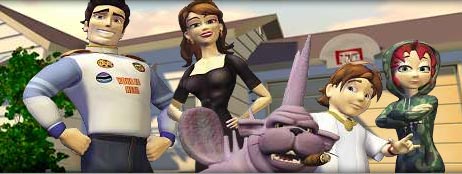
Over the past few weeks, while watching syndicated reruns of The Simpsons on our local UPN affiliate, I've come across more than my fair share of ads for its newest sitcom, Game Over. This sitcom is purportedly the first attempt to show what the behind-the-scenes lives of video game characters are really like (albeit in sitcom form). Upon seeing these ads, I will admit to a certain level of apprehension. Considering how most gamers generally tend to be viewed by people outside of our chosen medium, there is certainly a lot of potential for disaster with an undertaking such as a sitcom that would supposedly cater to the "gamer crowd." I had ultimately resolved myself to simply viewing the show on its debut date of March 10--that is, until a tape showed up in the mail that had on it the first two episodes of Game Over. Sensing an opportunity for a GameSpotting column, I snatched the tape and took it home for some weekend viewing.
Before I go any further with this column, allow me to preface the remaining portion by stating that I in no way hate sitcoms. I generally don't care for the "standard funny" that most people go for these days, like Friends, Everybody Loves Raymond or Will & Grace. I tend to go for the slightly more outside, random brand of funny found in shows like The Simpsons, Family Guy, and NewsRadio (Phil Hartman era, of course). However, when it comes to the kind of audience Game Over is clearly trying to draw in, just trying to be like a standard sitcom obviously isn't going to cut it. In many ways, I am very much the target audience of this show. It is this fact that ultimately makes Game Over such a terrible disappointment.
Game Over tells the story of The Smashenburn family, a motley crew of game characters trying to lead a normal existence amid their hectic, action-packed lives. Rip Smashenburn (voiced by Seinfeld alumnus Patrick Warburton), the patriarch of the family, works as a driver in some nondescript racing game and is typically the one who crashes midway through a race. Mom, otherwise known as Raquel Smashenburn (voiced by, of all people, Charlie's Angels star Lucy Liu), is more the adventurer type--think Lara Croft if she decided to settle down with a family in about five or six years or so. The kids are Alice (SNL's Rachel Dratch) and Billy (Powerpuff Girls vet E.G. Daily), and they are your typical self-esteem-lacking teenage girl and hip-hop-obsessed teenage boy, respectively. And, of course, there's Turbo (Dirty Work star and Howard Stern regular Artie Lange), the family pet that looks like a cross between a walrus and a bulldog, who also happens to have an affinity for strippers, kleptomania, and cigars. Within the scope of these characters' basic gimmicks, there are a few laughs to be had here and there, but any time the show begins to deviate even slightly from the gimmicks allotted to them, the show becomes painfully dull.
The first episode of the show is our typical "get to know you"-type of pilot where we meet all of the characters for the first time and learn the limitations of the show's sense of humor. Rip and Raquel are too busy for their kids, and the kids are beginning to get annoyed by this fact. So what better solution for the problem than to get a family pet to help bring the family back together? Enter Turbo. As we start to meet these characters, we also start to get a handle on the running gags that we're likely to see as the show continues. Rip crashes his car a whole lot; Raquel is constantly in search of various types of iconic monkeys made of jade, gold, and what have you; Billy's use of hip-hop slang constantly confuses his father; Alice, again, has no self-esteem, and she constantly whines about it; The Smashenburns wacky neighbors, the Chang family, are a pair of Shaolin warriors who are constantly fighting it out with evil ninjas; and did I mention that Turbo has a thing for strippers?
All of these conventions continue to play out in the second episode. This time, Alice's class is due to take the video game equivalent of a career aptitude test, so the pressure is causing her to predictably freak out. While this goes on, we also get a subplot about Billy falling in love with a blue-haired anime exchange student who can fly and leaves rainbow trails wherever she goes. This episode, even more so than the pilot, suffers from the biggest issue that seems to plague the show--good ideas but bad execution. All throughout episode two, there are funny ideas. The anime exchange student and the idea of a test that determines the career of a video game character could both potentially be very funny. Instead, the show wastes them by barely doing anything with the actual career test or with the anime exchange student. Instead, we get copious amounts of gags about trying to break into the insidious, labyrinthine testing facility to change Alice's score. Additionally, we get a lot of generally confusing and nonsensical scenes, which feature Billy's date with the anime girl, that really don't capitalize at all on what could be a really hilarious situation.
What's even more bizarre about both of these episodes is how little there is in the way of the show's inherent knowledge of games. These are supposed to be characters that live in a universe entirely populated by characters from video games. And yet, we never actually get a sense of what exactly it is that these characters do. At no point does an actual awareness of a world outside of the show's reality ever present itself. Rather than giving the perception that this world actually is made up of game characters, we instead get the feeling that we're just watching these weird, hyperactive characters who race cars, adventure through thick jungles, and fight ninjas simply because that's what they do in this weird world they live in.
While self-awareness isn't effectively necessary to succeed here, the show's occasional "in-jokes" that involve familiar gaming conventions throw the whole thing for even more of a loop. Abe from Oddworld makes a brief cameo as he walks through a toxic waste dump; Crash from the Crash Bandicoot series appears on a Got Milk? ad in one scene; and at one point, while walking through a shopping mall, a Hawaiian shirt-sporting thug runs up and randomly punches Rip in the face and runs away, thus leaving Rip to quip, "What is this? Vice City?" Outside of these vague cameos and lame referential gags, the show seems incapable of actual game-related humor.

Game Over isn't quite the unmitigated disaster that it could have been, but it definitely lacks the cohesive humor needed to make a successful sitcom. When watching the show, you can't help but feel like you're watching the painfully obvious result of a corporate boardroom's decision to try to cater to that "gamer audience." And yet, somehow, no amount of legitimate voice talent and writing talent could salvage what was ultimately a disingenuous effort to begin with. Of course, I could be wrong. Maybe this was really the earnest brainchild of a lifelong gamer who yearned to tell the tale of a family of video game characters. Whatever the case may be, the show simply doesn't work, either as a stand-alone sitcom or as a parody of the video game universe. Maybe over time Game Over could develop beyond its own gimmick in the same way that Fox's That '70s Show did. However, all I know is that any show that somehow manages to make Patrick Warburton completely unfunny and makes Artie Lange's stripper jokes fall flat is facing a spectacularly uphill battle.
However, despite whatever I've said here, I am actually going to urge any readers of this column to watch an episode of Game Over so that you can judge the show for yourself, assuming you haven't already. I say this because I think anyone who is passionate about games really ought to see what people outside the scope of our interest think we might find entertaining. It's always interesting to see what suits from other industries think we might like, and it certainly shows that we have a long way to go toward proving to them that despite what they may have heard to the contrary, we aren't some rogue sect of their target demographic. We're ultimately a part of the same core audience that everybody wants, and though we, as an audience, may not be quite as easy to please as the standard sitcom-watching crop, on the whole, we like the same crap that everybody else likes. There's really no need for specialized crap like Game Over.
| Sam Parker Manager, Files and Assets |
Free Stuff
People like free stuff. That's no revelation, but it is pretty fortunate that there is so much game content that costs virtually nothing in itself. In fact, if you're looking for free stuff, don't just sit around waiting for the next hot PC game demo. It's just not every day that a demo pops up for games like Far Cry, Painkiller, and Unreal Tournament 2004. Demos are great exposure for the games, and they've certainly kept the DLX servers busy, but the fact is, there's a lot more out there--particularly if you have broadband, but even that is not absolutely necessary.

Every week there are new demos for lower-profile games, and we recently even had the chance to point the spotlight on completely indie projects that made it into the IGF finals. Even if small games rarely get the full preview treatment, these free files are a practical, democratic way for new developers to get the word out. It's pretty painless to install a self-contained demo and try it out, after all. In fact, I've recently been entertaining myself by sampling a wide variety of games--even some older stuff I haven't played for a while. When it comes to revisiting games, it's just easier to download a demo (and see if it'll run under newer versions of Windows) than to dig around for a CD. I just wish that I could try out console games without having to get my hands on a physical disc. Oh, I can appreciate that publishers would never want us downloading disc images for demo discs, but there has to be an easier way. How about downloadable demos via services like Xbox Live? Let's file that away on the wish list for the next generation of consoles.
But if all those 50MB, 200MB, and 600MB PC demos are daunting for modem users, beta tests don't have to segregate gamers by bandwidth. Public betas are mostly a PC tradition, and they can be an odd mix of promotional teaser and an actual part of the development process. More than a few online games, in particular, have seen their stars rise or fall by the buzz from those in a closed public beta test. It's not easy to get into most betas, and some really do require some work from testers, in terms of reporting bugs or even just getting the work-in-progress to work well. It's definitely worth the effort to at least apply for betas, either by watching the listings in the beta center or looking out for the GameSpot Complete beta contests that we run periodically.

It's not as if there's no free stuff for console games--nearly all the truly snazzy, theatrical-style trailers are for console games--but you just have to work harder for it, with demo discs tied in to preorders and the like. But it is kind of amazing how much free PC game content is out there, both official and unofficial, and the Web makes most of it so easy to get. Beyond the no-strings-attached stuff I've already mentioned, there's also the amazing content available that can extend the life of games you already own. Like the generation of Half-Life mods that preceded them, Battlefield 1942 mods, such as Desert Combat and Eve of Destruction, might not be as polished as retail products, but they're still damn good. And some developers are more than a little generous with the free add-on content, like multiplayer maps, extra gameplay modes, and more. Just recently, there have been a number of bonus maps for Jedi Academy and Dungeon Siege: Legend of Aranna, and no one should forget the major multiplayer upgrades in Unreal II XMP and the completely free and stand-alone Return to Castle Wolfenstein: Enemy Territory.
Developers and publishers that support their games with quality free stuff deserve some kudos. Of course, as we've seen with other things on the Web, free stuff always costs someone something. But I'm not too worried that this gravy train will end anytime soon. Game makers can justify this free content as being promotional--it's tied in to generating word of mouth and customer loyalty for retail products. But since it's all so entertaining, I for one don't have any problem swallowing a giant portion of this kind of game marketing. I bet you don't either.
| Andrew Park Senior Editor |
Competitive Advantage
It's looking like a very promising March, especially if you're a fan of first-person shooters. Just take Encore Software's Soldner: Secret Wars, for instance; it's a very ambitious-sounding shooter coming out later in March that could be great. But the three most popular shooters to talk about still seem to be Battlefield Vietnam, Unreal Tournament 2004, and Far Cry--especially since the first two games come out at practically the same time, and the third comes out just a week later.
I've been asked several times which game people should get, based on my previous experiences with them. You want to know my honest answer, at this point? Just get all three. Seriously, stop asking me. At this point, just get all three. This isn't because I don't care about the experience that you, the reader, will get from the game (or because I don't care about you, the reader, in general). It's actually because despite the fact that they're all first-person shooters that seem to have a lot in common, they're actually all very different games that offer very different things. Yet they have a few very important (and very good) things in common. A few years ago, they wouldn't have, so it's definitely a step in the right direction.
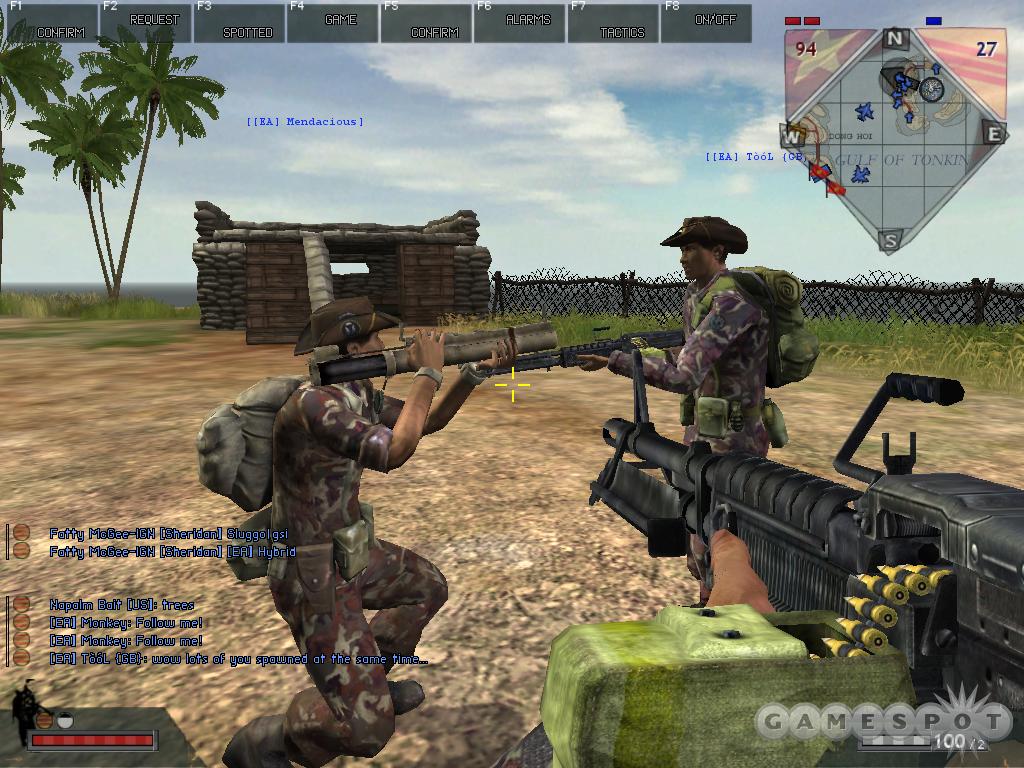

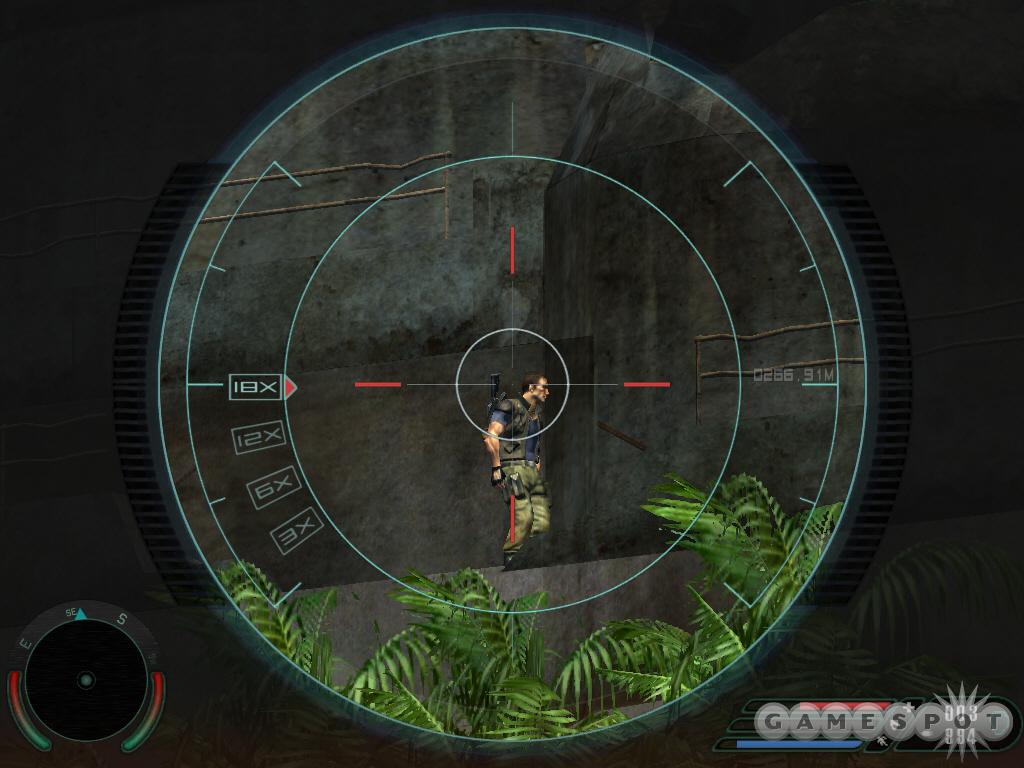
Keep in mind that I'm not somehow guaranteeing complete satisfaction with any of these games, because who knows what the future will hold after the games ship and go online. What I am saying is that these three games all make very compelling cases for themselves--maybe it's hard for each one to compete with the other, but any other game afterward will have to compete with them and the standards they will likely have set. In the meantime, I plan to play them all.
| Justin Calvert Associate Editor |
To Role-Play or Not to Role-Play...
As I've mentioned in one or two of my previous GameSpotting columns, I have a definite penchant for games that allow me to play as a character that looks like me. Whenever I purchase a game with a character editor, the first thing I do is spend as long as it takes to put myself in the game, no matter how desperate I am to start playing. My Pro Evolution Soccer 3 squad boasts a mediocre right winger named Justin Calvert; I've never played any of the Tony Hawk's Pro Skater games as anyone but myself; and for the last two months or so I've been living an alternate life in Star Wars Galaxies: An Empire Divided--not as Justin Calvert, but as a character that looks a little like him. What's worrying me, though, is that for the first time my character doesn't just look like me but is, in fact, me.

When I installed Star Wars Galaxies on my machine and was preparing to play for the first time, I created a character in my own image without even thinking about it. Humans are far and away the most popular species to play as in Star Wars Galaxies, but recently I've been wondering why on earth (or Naboo for that matter) I didn't opt for something more interesting. Like any game, Star Wars Galaxies gives me a chance to escape from real life and be someone else for a while, but rather than play the role of a twi'lek musician, a rodian bounty hunter, or a trandoshan tailor, I've kind of fallen into the role of a human male who wanders around the galaxy helping out players even newbier than him, avoiding player-versus-player combat and going on shopping sprees whenever he's got nothing better to do. It all sounds kind of familiar.
My Star Wars alter ego has so much in common with me that I wonder if maybe I'm doing something wrong. The time I put aside for role-playing right now seems to be spent not as someone else, but just as me, albeit in a galaxy far, far away. I do, of course, engage in a number of activities in the game that I wouldn't in real life, but when I'm not off on hunting and trapping expeditions, on Rebel missions, or crafting weapons, I can invariably be found at the local cantina discussing the week's soccer action, trading jokes from TV shows, and hoping that my taste in Ubese armor might get me noticed by a twi'lek dancer or two. Again, it all sounds a little too familiar, save for the twi'lek dancer and the armor.
Given the nature of the Star Wars Galaxies community, and I guess that of pretty much any massively multiplayer game, I suppose it's inevitable that the real characteristics of players will become evident through the behavior of their avatars. Personally I think I'd find it really hard to get into the role of an arrogant Imperial commando like the one who slapped me across the face and spat at me while I was waiting to meet a friend in Coronet Starport the other day, but I'm giving a lot of thought to starting a new character in a different galaxy to do just that, just to see if I can. It's conceivable, of course, that the commando in question is played by a guy who would behave in a similarly offensive way in real life, but I think if that were true of even half of the players who don stormtrooper uniforms in the game, then the real world be an even scarier place to live than it already is.
I guess the upside of my playing Star Wars Galaxies as a character who is essentially a well-armed and more sharply dressed version of the real me is that the players I get on well with in the game might be people I'd also choose to socialize with in real life. That said, since the odds of ever meeting these people are practically zero, I don't know what I'll really be missing out on if I ditch the human and choose to play as an angry wookiee brawler with bad breath instead. I guess the only way for me to find out is to try it.
| Jason Ocampo Associate Editor |
The Greatest Star Trek Game You've Never Heard Of
Every now and then, someone on the GameSpot Forums wants to know what the greatest Star Trek game is. Some respond with Star Trek: Elite Force, the first-person shooter. Others reply with Star Trek: Armada, the real-time strategy game. And yet others answer with Star Trek: Starfleet Command, the starship tactical combat game.

They're all wrong. The greatest Star Trek game ever made is, ironically, not an official Star Trek game. And yet it's one of the most revolutionary and influential games ever made. It's one of the first games to actually take advantage of the Internet for multiplayer. (We're talking years before Doom appeared.) It's one of the first multiplayer games to feature distinctly different player classes. It's a combination action and strategy game that features an amazing amount of depth. It's a game that's still being played today, despite the fact that it's more than 15 years old. And it's a game that most of you have never even heard of.
That game is Netrek.
If you went to college and ever hung out at the computing lab late at night, you might have seen someone playing Netrek. It's a game made by computer science students and played mainly by computer science students, which is a shame, because it's an amazingly fun and addictive multiplayer game that anyone could enjoy.
The premise behind the game is simple, and it's rooted deep in the geeky love of Star Trek that most computer science students share. Two teams of eight players each battle for control of the galaxy as the Federation, Klingons, Romulans, or Orions. Each player controls a starship, and they've got to venture out and destroy enemy starships, bomb planets, and transport armies to invade planets. Each side has seven different classes of starship, ranging from the speedy yet lightly armed scout to the lumbering yet powerful dreadnaught. Obviously, each class is good for particular duties. The scout is useful for warping deep into enemy space to raid enemy planets. The dreadnaught is useful for defense of core planets. The default class is the cruiser, and it's the perfect balance of speed and power. One player can even play as the starbase, a huge, lumbering station that can repair and refuel other starships. Naturally, that means that the starbase has got a huge bull's-eye painted all over it, and it's not unusual to see the opposing team launch waves of suicidal kamikaze attacks against it.
The game is chock-full of dogfighting; photon torpedoes and phasers fly wildly around, while starships dance around each other. But as much fun as the action is, the game is ultimately one of strategy, as teams have to coordinate their efforts in order to conquer planets. And the more successful your team is, the harder it becomes, because you'll stretch farther and farther from your homeworld, while the enemy battles desperately close to home to maintain control of its space.

The actual history of Netrek is long and convoluted, but its roots go back as far as the mid-1970s when computer science students started developing games on the expensive university mainframes in their spare time. The current incarnation of the game emerged in 1987, and it was designed to run on the Unix operating system and X Windows. But there is a Windows client that you can download and play, for free! There is a steep learning curve to appreciate all the nuances of the game, but there are FAQs available to smooth things out.
Netrek peaked in terms of popularity in the early '90s, and players began to defect to Doom and other multiplayer PC games shortly thereafter. But there's still a diehard community playing it every night. I recently started playing the game again after a 10-year hiatus, and it's lost none of its addictive qualities. If you're looking for a great multiplayer action strategy game, and you're a Star Trek fan, you should definitely try Netrek.
| Bethany Massimilla Community Manager |
Collecting Memories
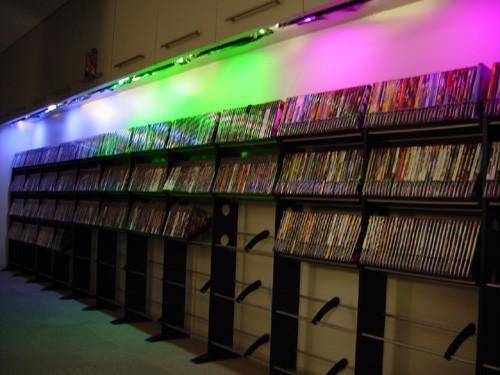
I'm fond of collecting things. I tend to be a neat sort of pack rat, though, so at least it doesn't cause all kinds of bad feng shui in my living space when I accumulate my beloved "stuff." It does make my hobbies stand out, as at any given time I will have on display a more-than-healthy number of books and a well-beyond-healthy number of video games. I fall into that category of gaming enthusiast who has just about every piece of game software they've ever bought in their entire lives. My missing purchases are the only three games I've ever traded to a retailer, and that was several years ago, so otherwise my collection is a pretty accurate representation of what I've played over my long gaming tenure. I like to browse through the stacks every so often and remember how old I was and what I was doing at the time I was playing certain games, and sometimes I'll get hit with a wave of nostalgia and have to boot up a particular title right then and there. I might not have the largest or most complete collection, and it might not always have the most breadth (90 percent of the original PlayStation games I own are RPGs), but I love having those memories shelved and within reach.
But, there are gaps. Specifically, of the multitude of NES, SNES, and Genesis games that I've played, I own, collectively, approximately 10.
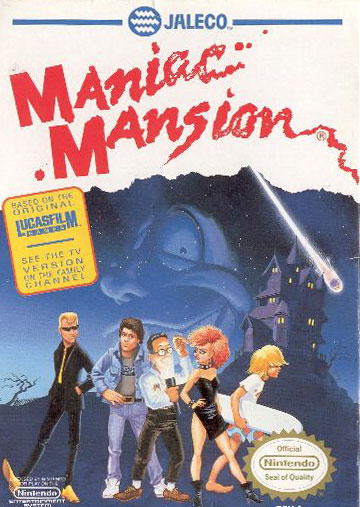
Back when I was a kid (don't you roll your eyes at me!) and the video game thing was catching on, I had no disposable income. Growing up in a family of six children also tends to limit everyone else's disposable income, and the result was that, outside of a game at Christmas, the only way I was going to see a new title (outside of my occasional insane saving schemes) was by grabbing it at my local movie rental store. So, that's what I did. I'd hop on my bike, head down to Movies 'n More, and find something cool to rent. The people who worked there got used to seeing me weekly, and I played whole lots of everything. All my Zelda and Metroid and Ninja Gaiden time was with rented cartridges. The very first Shining game, Shining in the Darkness, I completed on a rental cartridge (it was considered polite to always preserve the highest-level save game when you rented, so someone could finish it later). It was certainly a whole lot easier back then to spend $3-4 on a rental than it was to spend the time to save $60, but I now find myself wishing I had at hand all those great classics that I could then only play for short periods. As an RPG fan, it almost feels like a crime that I don't own the SNES Final Fantasy 2 or 3 or Chrono Trigger; I'm still missing Dragon Warrior II for the NES; and I've also kind of wanted a copy of the NES' unfathomable Princess Tomato in the Salad Kingdom. Just, you know, because.
I miss the oldies, and not because I want to line my shelves with immaculate games in perfect boxes while their eBay value accrues. I don't want bragging rights, impressive displays, or complete sets for the sake of completeness. I don't need to own every game I rented when I was 12; otherwise I'd probably own Friday the 13th for the NES, and no one hangs out with you when they find out that you own Friday the 13th for the NES. I like being able to visit my memories and see how they hold up. I want to play Ikari Warriors again and put in the A B B A code. I want to snicker at hideous box art and flip through old manuals. I want that copy of Maniac Mansion that I worked and worked to save for but never was able to buy. I want to stuff my shelves with memories, and while it'll take a long time and a bit of funds, I think I'll get there one day. The only problem is finding a warehouse to live in.
| Greg Mueller Intern |
The Genius of Game Gimmicks
I have never been dismayed by having too much control in a video game. I am somewhat fascinated, then, when a game such as Konami's LifeLine is released. This game doesn't merely give players an option to issue voice commands; instead, it limits control entirely to simple directives spoken into a microphone attached to the player's head. The first thing I think when I see this is "Why?" Have gamers written to Konami asking for such a thing? Of course they haven't. The real reason for the development of titles like LifeLine is to provide jaded gamers with something new and different. This is a tactic known as The Gimmick, and it has been employed sporadically throughout the history of video games--sometimes successfully, but most of the time not so much. Many game gimmicks fall flat, but they are a natural and healthy means of progression for the industry as a whole.
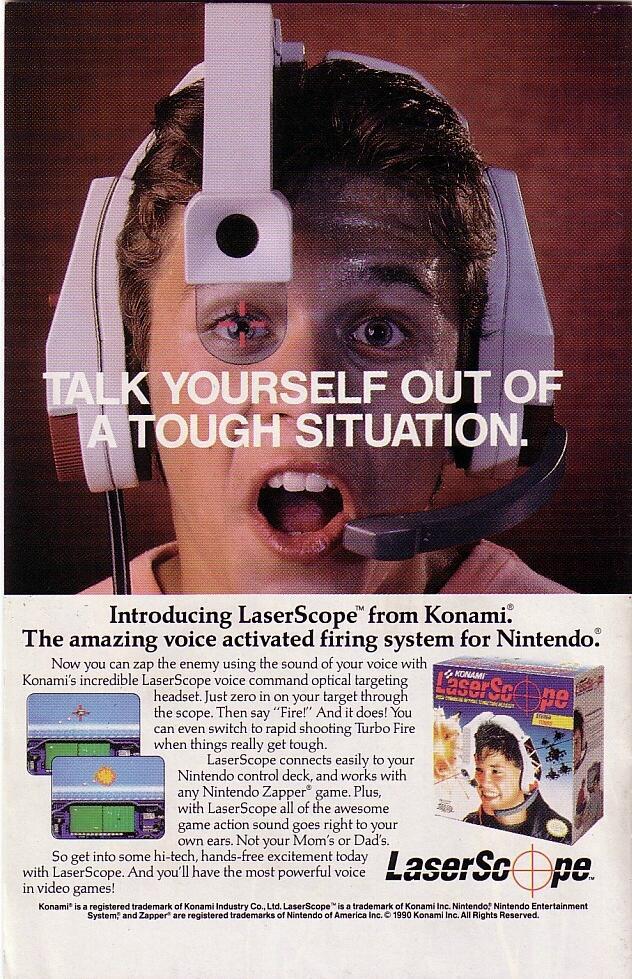
Konami's recent title is not the first game gimmick by a long shot. In fact, LifeLine isn't even Konami's first attempt at using voice command in a game. Way back in the NES days Konami released a shooting game called Laser Invasion along with a specially designed headset called the Laser Scope. The device was basically headphones with a microphone and a reticle placed in front of your eye. You would aim by moving your head and fire by shouting into the microphone. Unfortunately, once the novelty of the scope wore off most gamers realized the game played much better with the standard Zapper light gun.
Konami is not the only company that has used gimmicks in an attempt to sell games. The Sega Master System had a few 3D titles that required the use of special glasses that connected to a controller port. Some of Square's first titles could be called gimmick games. The NES games Rad Racer and 3-D World Runner came packaged with a pair of the old flimsy cardboard 3D glasses that you would naturally lose within hours of opening the package, and in turn, you would realize that the games played better without the ancillary eyewear anyway. Even the beloved Nintendo has delivered its share of gaming gimmicks. The PowerGlove, Power Pad, and R.O.B. all sounded cool enough on paper, but they only brought disappointment to gamers who were duped into purchasing them. Nintendo has even taken the gimmick a step beyond mere peripherals and launched entire consoles based on gimmicks. The oft-lampooned Virtual Boy comes to mind, as does a recently announced multiscreened handheld.
I don't think the people at Konami really believe LifeLine will have any more of a profound impact on the gaming industry than the shoddy Laser Scope. Why then would they choose to publish such a title? Even if the game is not a critical success, chances are it will translate into profit for Konami, either directly or indirectly. Jaded gamers will look twice at a game like LifeLine simply because it is new and different from the myriad shooters, RPGs, or hack-and-slash titles on the shelves. Even if those gamers don't purchase the title, the box is clearly tagged with the Konami brand. Placing your name on an innovative or unique title is a clever tactic, even if said game is not particularly fun or exciting to play. Consciously or subconsciously, gamers will associate Konami with innovation, and that is never a bad thing for the company.
I used to work for a large appliance and home-electronics retailer. One of the most gawked-at displays on the sales floor was an $8,000 refrigerator with Internet access, digital temperature controls, a touch-screen monitor, and even a digital camera for recording short videos. We never sold a single one of these refrigerators, but the display continued to occupy prime real estate on the sales floor. The reasoning behind this was to show customers that this particular retailer was on the cutting edge of technology and that we knew about things most people couldn't even begin to comprehend. When people think you know what you are doing, they are much more likely to trust you with their money.
Even if this indirect marketing doesn't work, there is also an outside chance the gimmick will be welcomed by the gaming community and will result in more direct commercial success. After all, it was Konami who delivered the smash hit Dance Dance Revolution, which wouldn't work at all without its proprietary dance pad controller. There have been other successful game gimmicks as well. Force feedback first appeared as a gimmick with the Rumble Pak and Starfox 64 package. Today, force feedback is so common it's barely listed as a feature on game boxes.
As long as video games are around, companies will periodically resort to gimmicks to sell games. Konami's latest attempt with LifeLine may not be revolutionary, but it is a respectable effort. Ingenious or laughable, these gimmicks do more than provide endless fodder for collectors and trivia buffs. Game gimmicks can make us stop and critically analyze not just the games we play, but how we play them. These gimmicks spark innovation, which leads to progress--which ultimately leads to better games for everyone. And if you get to see your friend wearing something as funny looking as the Laser Scope, that's just an added bonus.
Got a news tip or want to contact us directly? Email news@gamespot.com



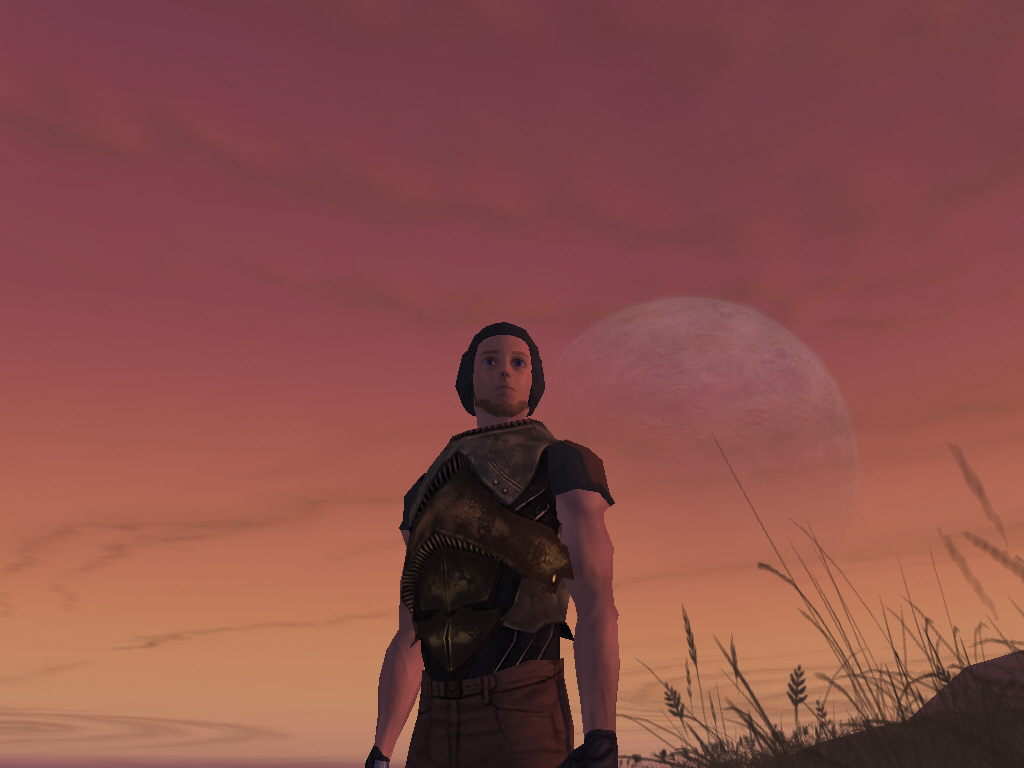
Join the conversation